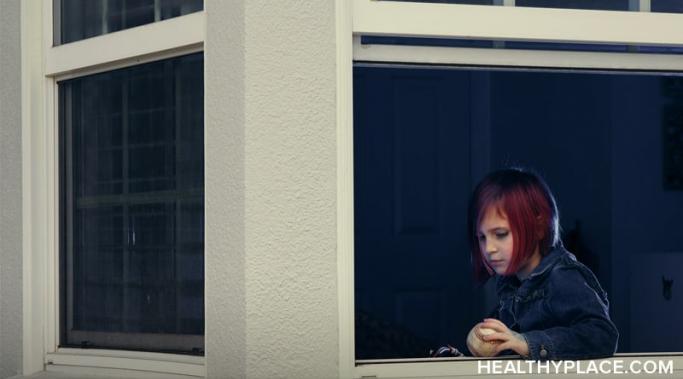Healing borderline personality disorder (BPD) seemed like a vague concept. I used to romanticize healing, to think of it as this linear journey where each step forward meant fewer breakdowns and more sunshine. But in my experience, living with BPD feels like the mind is a treacherous landscape, and talk therapy just isn't enough. It's one thing to talk about wanting to be free of your triggers and to imagine yourself as some serene, enlightened version of yourself. But it's a whole different thing to feel that weight lift off you in real time. While difficult, healing borderline personality disorder is possible.
Coping with BPD
Overcoming codependency is a significant milestone in anyone's journey. Growing up, I felt like my emotions were too complex, strong, or nuanced to share. The community I was raised in didn't encourage open emotional expression, so I kept my feelings to myself. This environment is particularly detrimental for someone with borderline personality disorder (BPD), where the ability to express and validate emotions is crucial for mental stability and self-understanding. But I've found I can overcome codependency.
Daily journaling has been my guiding light on the path to managing borderline personality disorder (BPD). When hit with a BPD trigger, there are intricate layers to my emotions and thoughts. Having those thoughts in front of me is sometimes the only tool that loosens the grip cognitive distortions have on me. It's more than just putting pen to paper; it's a safe place where I can process my inner turmoil and gain invaluable self-awareness. Journalling is definitely helpful for BPD management.
For someone with borderline personality disorder (BPD), a complex emotion like jealousy in relationships can be particularly intense and pervasive. I'm afraid of how jealousy tends to impact my relationships and self-perception. But these days, I strive to question its origins and implications. Here's how I've handled jealousy in relationships with borderline personality disorder.
For those grappling with borderline personality disorder (BPD), the aftermath of a BPD breakup can feel excruciating. The aftermath of a BPD breakup isn't just about saying goodbye to a partner; it's a deep, existential unraveling. The experience of a BPD breakup is akin to mourning a death, where I am forced to confront the fragments of myself and painstakingly rebuild from the ground up. After a BPD breakup, I've not only lost a loved one, but I've also lost myself.
Code-switching in borderline personality disorder (BPD) is something I've been trying to understand lately. I know so far that it's a survival strategy I've clung to in a reality where the threat of rejection casts its shadow over everything.
People with borderline personality disorder often have issues with feelings of rejection. In fact, the feeling of rejection is the thing that gets under my skin the most. With borderline personality disorder (BPD), even the tiniest microexpression can make me feel like I'm going off the deep end. Now, there's this one time that sticks out like a sore thumb when it comes to feeling rejected -- the classic "no text back" scenario.
I've made it my mission to understand splitting and borderline personality disorder, given the profound shame that often follows when I split on my loved ones. If you have borderline personality disorder (BPD), you might know that splitting is a defense mechanism where we perceive people, including those we deeply care about, as either entirely good or entirely bad.
In the past, my trauma therapist has had to give me a reality check about over-identifying with borderline personality disorder (BPD). To be honest, I needed that wake-up call. Not every unpleasant thought or emotional dip is automatically a BPD symptom. It's made me realize the pitfalls of getting too wrapped up in identifying with my mental health issues.
Emotional resilience when a relationship ends is important if challenging. As someone with borderline personality disorder (BPD), the ending of relationships feels no short of an existential nightmare. The grief isn't just about losing someone; it's about losing the version of me that I molded to fit within that love story. Post-breakup, I feel like I'm looking at my reflection in a funhouse mirror. What stares back is distorted, confusing, and sometimes downright unrecognizable.









